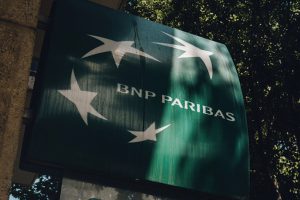Paul J. Davies
If you want to forecast the fates of banks in the UK and Europe, the one thing you should watch is gas prices. If the winter is warm and stored gas goes unburned, the region’s unloved lenders are going to look significantly undervalued.
Third-quarter results have highlighted that many sit on billions of pounds or euros of excess capital. At some, this money will be needed partly to meet higher capital demands from regulators as the final parts of the Basel global capital rules are fully implemented in Europe. Others will want to invest in growing lending or acquisitions.
But a large part of the cash should be handed back to shareholders, especially if economies don’t suffer as much as some fear.
The reason to watch gas is simple: It is going to be one of the most important influences on the paths of inflation and interest rates — and thus on the length and depth of the seemingly inevitable recession to come. That is a major difference with the US, where Russia’s invasion of Ukraine has caused far fewer problems with regards to the economy and energy costs.
Still, Europe’s banks, like their US peers, have seen profits boosted by rising interest rates and strong trading on bond and currency desks alongside few repayment problems among borrowers. Everyone expects things to get worse, though, and banks have all been increasing provisions for bad loans — but again, much like their US peers, these often look like a return to pre-pandemic levels rather than a sharp uptick.
Even after these provisions, strong profits have helped banks build capital for high-potential handouts to investors. BNP Paribas SA leads the pack mainly because it is due to get $16 billion from the sale of its US arm, Bank of the West. BNP will do a 4 billion-euro buyback as soon as the transaction closes, probably late this year. That alone equates to a one-off yield of nearly 6.5% on BNP’s current stock market value. On top of that, it promised in a strategic plan unveiled at the start of this year to pay out at least 50% of earnings as cash dividends annually.
Even then, BNP will be left with about 7 billion euros of excess capital that it wants to spend on deals or technology to boost growth.
If it can’t find the right bolt-on acquisitions or profitable assets to invest in, the pressure will grow to return that cash to shareholders. And that would amount to another 11% yield on its current market value.
Other banks might not have monster sale proceeds coming in, but several still have plenty of capital.
—Bloomberg
 The Gulf Time Newspaper One of the finest business newspapers in the UAE brought to you by our professional writers and editors.
The Gulf Time Newspaper One of the finest business newspapers in the UAE brought to you by our professional writers and editors.
